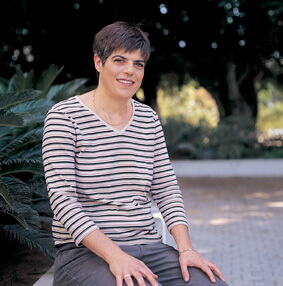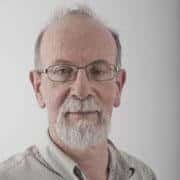The new members of the Academy are: Prof. Naama Barkai and Prof. Adiel (Adi) Stern from the Weizmann Institute, Prof. Simon Hopkins from the Hebrew University, and Prof. Micah Sharri from Tel Aviv University
The Israel National Academy of Sciences will hold the traditional festive ceremony of welcoming the new members on Hanukkah. With their joining, the academy has 128 members and members in its two divisions. Academy members are elected for life.
And these are the four scientists:
- Prof. Naama Barkai - Head of the Department of Molecular Genetics at the Weizmann Institute of Science, member of the European Academy and the European Organization for Molecular Biology.
- Prof. Simon Hopkins - philologist and professor emeritus in the Department of Arabic Language and Literature at the Hebrew University of Jerusalem, member of the British Academy.
- Prof. Adiel (Adi) Stern - Professor of Theoretical Physics in the Department of Condensed Matter Physics at the Weizmann Institute of Science, Fellow of the American Physical Society.
- Prof. Micah Sharr - Professor of Computer Science and in charge of the Chair of Computational Geometry and Robotics at Tel Aviv University.
The ceremony will take place on Tuesday, the third candle eve of Hanukkah, December 4, 2018, at the Academy House in Jerusalem at the open session of the General Assembly.
The president of the Academy, Prof. Neely Cohen, welcomed the new members and said that their joining strengthens the ranks of the Academy of Sciences with additional researchers of the highest caliber and that they will help the Academy achieve its goals and develop the extensive scientific activity in Israel in the years to come.
The Israel National Academy of Sciences is the highest body in the scientific community in Israel. It was founded by law in 1961 with the aim of bringing together the best scientists in Israel, fostering and promoting scientific activity in the country, and advising Israeli governments regarding research and scientific planning of national importance.
Prof. Naama Barkai

Prof. Naama Barkai is the head of the Department of Molecular Genetics at the Weizmann Institute of Science, a member of the European Academy (Academia Europaea) and the European Molecular Biology Organization (EMBO).
Prof. Barkai is engaged in building mathematical models of biological systems. One of her main contributions is the definition of the principle of robustness of biological circuits, which states that during evolution, stable biological circuits have developed that perform their main operation with minimal or no sensitivity to noises that are an integral part of the biological environment. Over the years, Prof. Barkai used the principle of stability to characterize the principles of stabilization and the methods of operation of various circuits, especially circuits that work to define spatial patterns during embryonic development.
Prof. Barkai's work won her the Rothschild Prize, the EMBO Prize for Women in Science, the Helen and Martin Kimmel Prize for Innovative Research and the Michael Bruno Prize.
Prof. Simon Hopkins
Prof. Simon Hopkins is a philologist and professor emeritus in the Department of Arabic Language and Literature at the Hebrew University of Jerusalem. Immigrated to Israel from England in 1983. Member of the British Academy.
Prof. Hopkins deals with the philology of the Semitic languages in general, and especially in Arabic and Aramaic in their various forms in the ancient period, the Middle Ages and the modern period. In his studies, he paid special attention to the first evidence of literary Arabic as it is reflected in the Muslim papyri from the beginning of Islam. He deals with Jewish Arabic from the Middle Ages, both in the earliest texts, from the first millennium, and in the Arabic works of Maimonides. In the field of Aramaic, he researches various dialects of New Aramaic that still exist in Israel.
Prof. Hopkins won the medal named after Edward Ohlendorf in the field of Semitic language research on behalf of the British Academy.
Prof. Adiel (Adi) Stern
Prof. Adiel (Adi) Stern is a professor of theoretical physics in the department of condensed matter physics at the Weizmann Institute of Science and a fellow of the American Physical Society. He was born and raised in Be'er Sheva.
Prof. Stern's main area of scientific interest is the way in which quantum theory is reflected in the properties of electronic systems. In his scientific work, he attaches great importance to the search for clear physical explanations for complex problems. Not unrelatedly, his hobby is the popularization of science. He collaborates successfully with theorists and experimenters.
Prof. Stern has been invited to give lectures, among others, at the conferences of Solvay, the Simons Foundation and Microsoft. He is a founding member of Microsoft's Q project to build a quantum computer, and won the Lottery's Landau Science Prize.

Prof. Micah Shair
Prof. Micah Sharr is a professor of computer science and is in charge of the chair of computational geometry and robotics at Tel Aviv University.
Prof. Schir's research deals with computational and combinatorial geometry and in the past also with robotics, and their various applications. He is one of the founders of the field of algorithmic motion planning in robotics (in a series of articles on the "piano mover problem").
Prof. Sharri published about 350 articles in the professional press and delivered about 250 lectures at conferences, and also wrote and edited four books.
His works earned him the A.M.T. Prize, the Lottery's Landau Science Prize, the Max Planck Prize, the Fehr Prize, and the Israel Security Prize. He holds an honorary doctorate from Utrecht University (since 1996) and is a fellow of the ACM.
